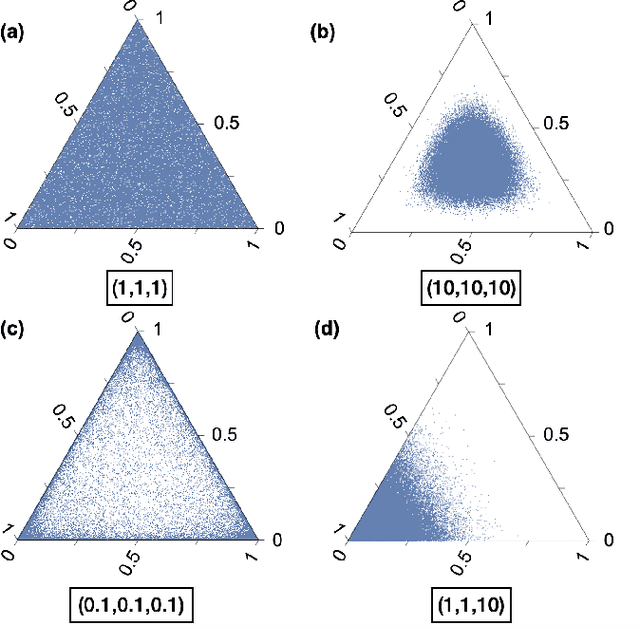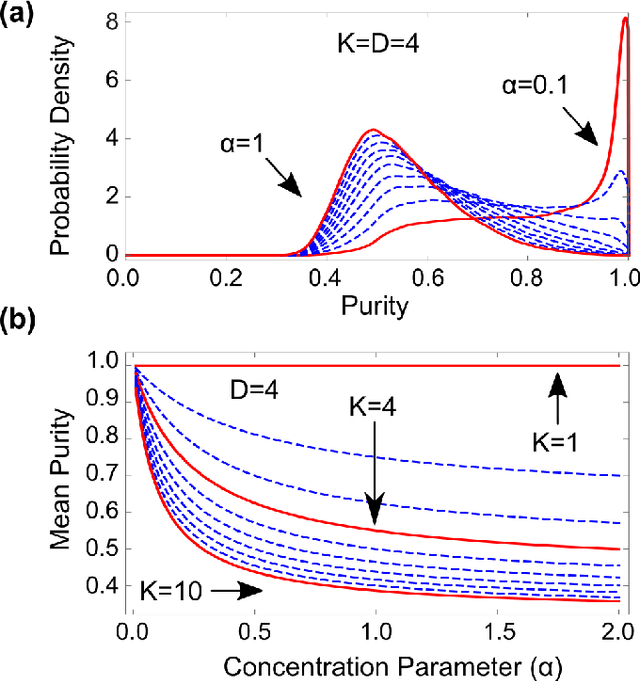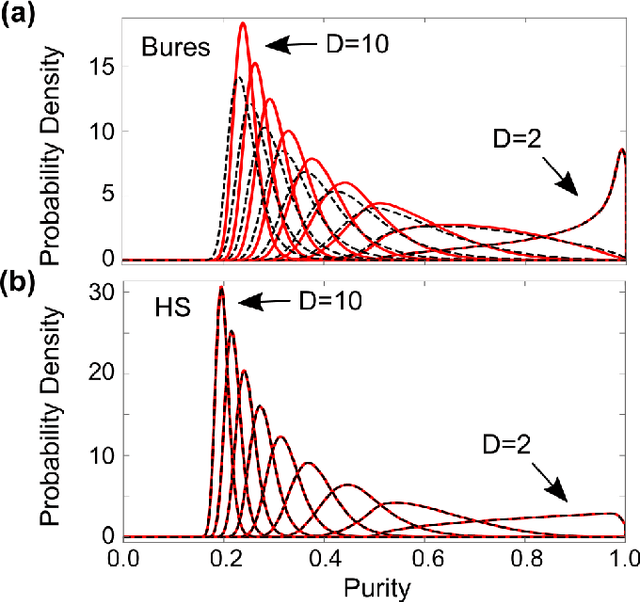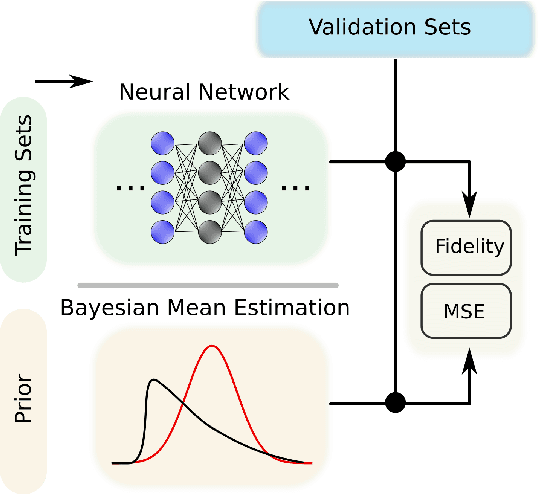Daniel E. Jones
Demonstration of machine-learning-enhanced Bayesian quantum state estimation
Dec 15, 2022Abstract:Machine learning (ML) has found broad applicability in quantum information science in topics as diverse as experimental design, state classification, and even studies on quantum foundations. Here, we experimentally realize an approach for defining custom prior distributions that are automatically tuned using ML for use with Bayesian quantum state estimation methods. Previously, researchers have looked to Bayesian quantum state tomography due to its unique advantages like natural uncertainty quantification, the return of reliable estimates under any measurement condition, and minimal mean-squared error. However, practical challenges related to long computation times and conceptual issues concerning how to incorporate prior knowledge most suitably can overshadow these benefits. Using both simulated and experimental measurement results, we demonstrate that ML-defined prior distributions reduce net convergence times and provide a natural way to incorporate both implicit and explicit information directly into the prior distribution. These results constitute a promising path toward practical implementations of Bayesian quantum state tomography.
Improving application performance with biased distributions of quantum states
Jul 15, 2021



Abstract:We consider the properties of a specific distribution of mixed quantum states of arbitrary dimension that can be biased towards a specific mean purity. In particular, we analyze mixtures of Haar-random pure states with Dirichlet-distributed coefficients. We analytically derive the concentration parameters required to match the mean purity of the Bures and Hilbert--Schmidt distributions in any dimension. Numerical simulations suggest that this value recovers the Hilbert--Schmidt distribution exactly, offering an alternative and intuitive physical interpretation for ensembles of Hilbert--Schmidt-distributed random quantum states. We then demonstrate how substituting these Dirichlet-weighted Haar mixtures in place of the Bures and Hilbert--Schmidt distributions results in measurable performance advantages in machine-learning-based quantum state tomography systems and Bayesian quantum state reconstruction. Finally, we experimentally characterize the distribution of quantum states generated by both a cloud-accessed IBM quantum computer and an in-house source of polarization-entangled photons. In each case, our method can more closely match the underlying distribution than either Bures or Hilbert--Schmidt distributed states for various experimental conditions.
 Add to Chrome
Add to Chrome Add to Firefox
Add to Firefox Add to Edge
Add to Edge